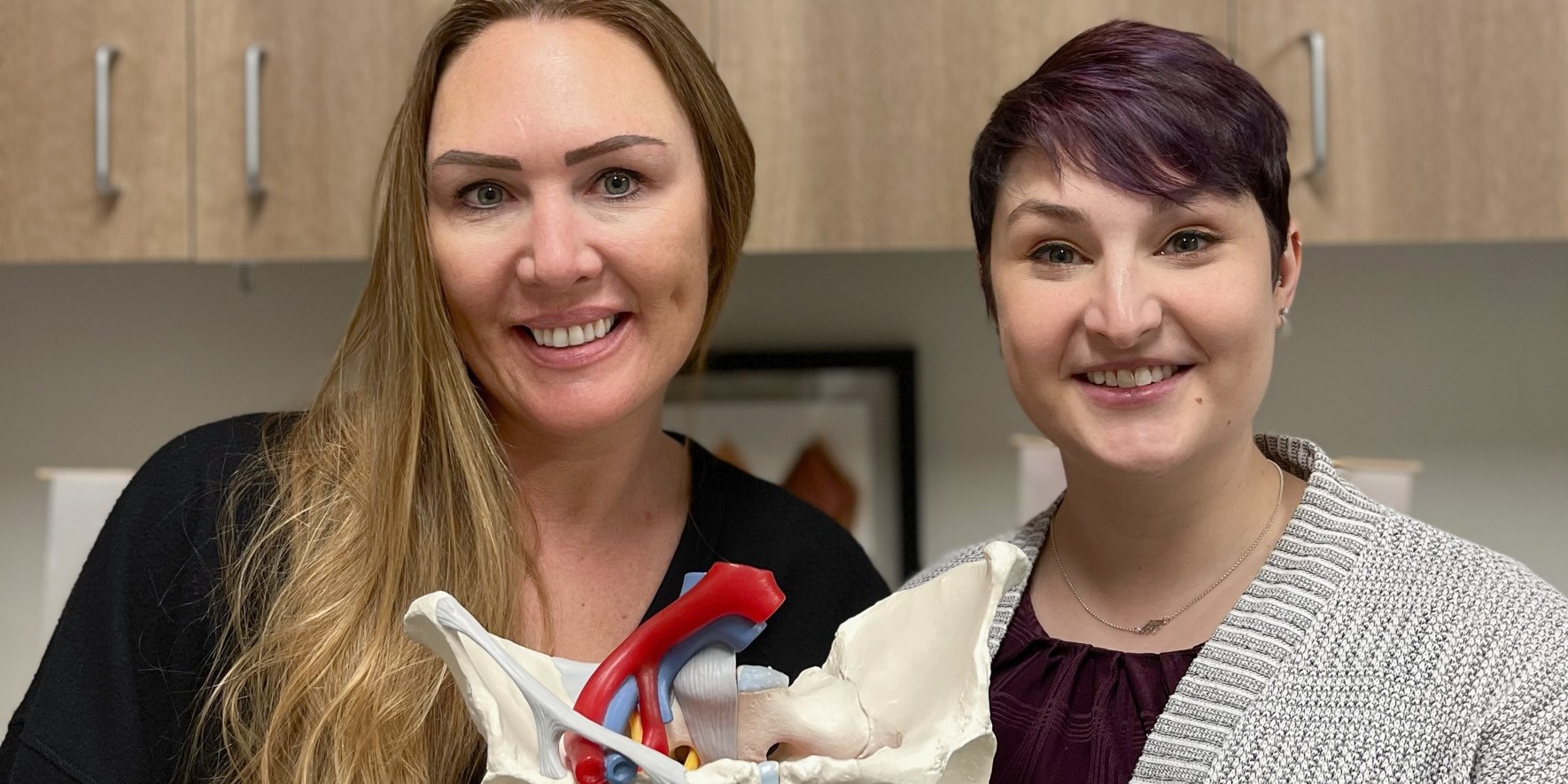Diastasis of the Rectus Abdominis Muscle (DRAM) is the separation of the two rectus abdominis muscles along the linea alba and is very common during and after pregnancy as the rectus abdominis and linea alba stretches and thins. Patients with DRAM are often sent to seek non-surgical management for DRAM from a physical therapist (PT). Typically these patients are either at the end of their pregnancy or adjusting to round the clock care of an infant. They can be sleep deprived, and have a full schedule of doctor’s appointments, having difficulty finding childcare, making attending PT somewhat challenging. Furthermore, they may have difficulty finding the time for a home exercise program (HEP). As PT’s we often struggle with making sure to give the patient exercises that will accomplish the goal of improving DRAM, however, making sure the HEP is not so extensive or time consuming that it becomes unmanageable. Is something as easy as abdominal bracing with exercise effective for reducing DRAM in post-partum women? A recent study published in 2015 in the International Journal of Physiotherapy and Research explores just this topic(Acharry).
Why is Diastasis of the Rectus Abdominis Muscle (DRAM) important?
Women with DRAM tend to have a higher degree of abdominal and pelvic region pain(Parker). Also women with DRAM may be more likely to have support related pelvic floor problem such stress urinary incontinence, fecal incontinence, or pelvic organ prolapse. The linea alba and rectus abdominis play an integral role in maintaining the anterior support of the trunk, these structures work together with pelvic girdle, posterior trunk muscles, and hips in maintaining stability when we shift weight (or transfer load) such as with standing, squatting, walking, carrying, and lifting. Therefore postural stability may be impaired with these daily tasks. Lastly, the abdominal muscles and fascia protect and support our organs so women with DRAM may have compromised support and protection of visceral structures.
Is DRAM common?
Pregnancy is the most common cause of DRAM and studies widely range from 50-100% of women experiencing DRAM at end stage pregnancy. Natural reduction and greatest recovery of DRAM usually occurs between day 1 and week 8 after delivery. Various ways exist to diagnose DRAM. The gold standard for diagnosis is computed tomography but is sometimes considered impractical due to expense. Clinically a separation of 2.0-2.7cm or “two finger widths” of horizontal separation at the umbilicus or 4.5cm above or below while performing a hooklying (supine with knees bent) abdominal curl up is considered pathological separation.
As pelvic rehab practitioners, it is common for our patients to ask us dietary questions pertaining to their unique pelvic floor symptoms. We often counsel on fluid consumption, bladder irritants, and fiber intake. At times, we even give our patients a bladder or bowel diary to better monitor nutritional status and habits. However, how often do we ask about vitamin D status? It is common knowledge that vitamin D deficiency contributes to osteoporosis, fractures, and muscle pain and weakness, but what is the role of vitamin D in overall health of the female pelvic floor. Is vitamin D supplementation something we as health care providers need to at least discuss? An article published in the International Urogynecology Journal (Parker-Autry) explores this topic. This interesting paper reviews current knowledge regarding vitamin D nutritional status, the importance of vitamin D in muscle function, and how vitamin D deficiency may play a role in the function of the female pelvic floor.
How may vitamin D play a role in the function of the pelvic floor?
Vitamin D affects skeletal muscle strength and function, and insufficiency is associated with notable muscle weakness. Vitamin D has been shown to increase skeletal muscle efficiency at adequate levels. The levator ani muscles and coccygeus pelvic floor muscles are skeletal muscle that are crucial supporting structures to the pelvic floor. Pelvic floor musculature weakness can contribute to pelvic floor disorders such as urinary or fecal incontinence and pelvic organ prolapse. Pelvic floor muscle training for strengthening, endurance, and coordination, are first line treatment for both stress and urge urinary incontinence, fecal incontinence, pelvic organ prolapse, and overactive bladder syndrome. The pelvic floor muscles are thought to be affected by vitamin D nutrition status. Additionally, as women age, they are more prone to vitamin D deficiency and pelvic floor disorders.
This article reviews several studies, including small case and observational, that show an association between insufficient vitamin D and pelvic floor disorder symptoms and severity of symptoms. The recommendation from this review is that more studies of high quality evidence are needed to fully understand and demonstrate this relationship between vitamin D deficiency and pelvic floor disorders. However, the authors feel that vitamin D supplementation may be a helpful adjunct to treatment by helping to optimize our physiological response to pelvic floor muscle training and improving the overall quality of life for women suffering from pelvic floor disorders.








































